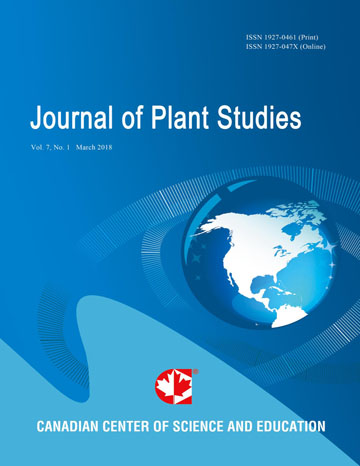Antinociceptive and Anti-Inflammatory Activities of the Aqueous Leaf Extract of Tamarindus indica L. in Albino Rats
- S. T. Akor
- B. Wampana
- O. A. Sodipo
Abstract
The research was conducted to investigate the phytochemical constituents, acute toxicity, the anti-inflammatory and antinociceptive activities of the aqueous extract of Tamarindus indica L. (AQETI) leaves. Phytochemical constituents present in AQETI were found to be flavonoids, cardiac glycosides, tannins and terpenoids which might be responsible for the established anti-inflammatory and antinociceptive activities in the plant extract. The leaf extract of the plant was found to be moderately toxic with an intraperitoneal acute toxicity (i.p. LD50) of 566 mg/kg. AQETI produced significant (p < 0.05) and dose-dependent anti-inflammatory and antinociceptive activities. AQETI (400 mg/kg) exhibited a maximum percentage inhibition (56.97%) in acetic acid-induced writhing response and at 30 min increased the pain threshold by 100 % in the tail immersion test. In the hot plate method, AQETI (400 mg/kg) showed a similar percentage inhibition (84.62%) at 30 and 60 min. The results demonstrate that the aqueous extract of Tamarindus indica L. leaves contains some pharmacologically active substances, was moderately toxic and possessed significant anti-inflammatory and antinociceptive acivities.
- Full Text:
 PDF
PDF
- DOI:10.5539/jps.v4n2p44
Journal Metrics
h-index (December 2021): 17
i10-index (December 2021): 37
h5-index (December 2021): N/A
h5-median(December 2021): N/A
( The data was calculated based on Google Scholar Citations. Click Here to Learn More. )
Index
Contact
- Joan LeeEditorial Assistant
- jps@ccsenet.org
